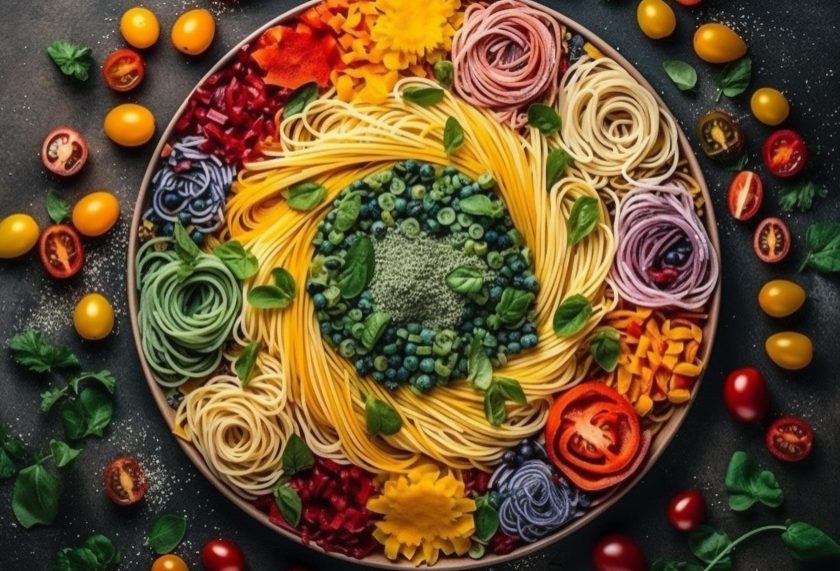Vegan Testing
The adoption of the vegan diet has gained significant popularity, with an increasing number of individuals opting for it due to ethical, environmental, or health considerations. This dietary choice has shown potential health benefits, such as enhanced blood sugar control and heart health. However, it’s important to note that exclusively relying on plant-based foods in this diet may, in certain instances, elevate the risk of nutrient deficiencies. Shreeyan Lab recognizes the diverse nutritional aspects associated with vegan diets.
What is the Vegan Diet or Veganism?
Veganism, as defined, is a lifestyle committed to eliminating all forms of animal exploitation and cruelty, extending to food, clothing, and other aspects. It represents a variant of the vegetarian diet that excludes meat, eggs, dairy products, and any other ingredients derived from animals. Furthermore, many vegans refrain from consuming foods processed with animal products, including items like refined white sugar and certain wines.
In recent times, the vegan diet has undergone significant development, attracting widespread attention globally and progressively gaining mainstream recognition. Shreeyan Lab acknowledges the evolving landscape of veganism and its growing prominence.

What are the food products the vegan Diet excludes?
Meat and Poultry
beef, lamb, pork, veal, horse, organ meat, wild meat, chicken, turkey, goose, duck, quail, etc.
Fish and seafoods
all types of fish, anchovies, shrimp, squid, scallops, calamari, mussels, crab, lobster, etc.
Eggs
from chickens, quails, ostriches, fish, etc.
Dairy
milk, yogurt, cheese, butter, cream, ice cream, etc.
Bee Products
honey, bee pollen, royal jelly, etc.
Animal-based ingredients or extracts
whey, casein, lactose, egg white albumen, gelatine, cochineal or carmine, isinglass, shellac, L-cysteine, animal-derived vitamin D3, and fish-derived omega-3 fatty acids
What are the food products the vegan Diet excludes?
Health-conscious vegans substitute animal products with plant-based replacements, such as
Tofu, tempeh, and seitan
These provide a versatile protein-rich alternative to meat, fish, poultry and eggs in many recipes
Seeds
Legumes
Foods such as beans, lentils, and peas are excellent sources of many nutrients and beneficial plant compounds. Sprouting, fermenting and proper cooking can increase nutrient absorption.
Nutritional yeast
This is an easy way to increase the protein content of vegan dishes and add an interesting cheesy flavour. Pick vitamin B12-fortified varieties whenever possible.
Whole grains, cereals and pseudo-cereals
These are a great source of complex carbs, fibre, iron, B vitamins and several minerals. High-protein options include spelt, teff, amaranth, and quinoa.
Nuts and nut butter
Unblanched and unroasted varieties are good sources of iron, fibre, magnesium, zinc, selenium and vitamin E.
Calcium-fortified plant milk and yogurt
These help vegans achieve their recommended dietary calcium intake. One can opt for varieties also fortified with vitamins B12 and D whenever possible.
Fruits and vegetables
Both are great foods to increase your nutrient intake. Leafy greens such as bok choy, spinach, kale, watercress and mustard greens are particularly high in iron and calcium.
Sprouted and fermented plant foods
Ezekiel bread, tempeh, miso, natto, sauerkraut, pickles, kimchi, and kombucha often contain probiotics and vitamin K2. Sprouting and fermenting can also help improve mineral absorption.
Fruits and vegetables
Both are great foods to increase your nutrient intake. Leafy greens such as bok choy, spinach, kale, watercress and mustard greens are particularly high in iron and calcium.
Types of Diets
Lacto-vegetarian
Excludes eggs, meat, seafood, and poultry and includes milk products.
Ovo-vegetarian
Excludes meat, seafood, poultry, and dairy products and includes eggs.
Lacto-ovo vegetarian
Mediterranean
Similar to whole-foods, plant-based diet but allows small amounts of chicken, dairy products, eggs, and red meat once or twice per month. Fish and olive oil are encouraged. Fat is not restricted.
Whole-foods, plant-based, low-fat
Encourages plant foods in their whole form, especially vegetables, fruits, legumes, and seeds and nuts (in smaller amounts). For maximum health benefits, this diet limits animal products. Total fat is generally restricted.
It is best to consult a doctor or nutritionist before making drastic changes in one’s diet
Concerns
Studies show that vegans are at a higher risk of having inadequate blood levels of vitamin B12, vitamin D, long-chain omega-3s, iodine, iron, calcium, and zinc.
A plant-based diet is not an all-or-nothing program, but a way of life that is tailored to each individual. It may be especially beneficial for those with obesity, Type 2 diabetes, high blood pressure, lipid disorders, or cardiovascular disease. There may be a chance of nutritional deficiencies if in case not taken care properly. Certain nutrients should be taken care such as iron, calcium, essential fatty acids, vitamin-D, most significantly vitamin-B12.
So those who follow plant-based diets need to be self-monitored and make sure to include lots of green leaves, fortified foods, other vitamin supplements. Vegan and vegetarian diets are similarly tested for vitamins, minerals, and essential fatty acids.
It is best to consult a doctor or nutritionist before making drastic changes in one’s diet
Recent Regulation Notifications
The Ministry of Health and Family Welfare/Food Safety and Standards Authority of India (FSSAI) has released preliminary regulations for packaged vegan food products. These regulations define vegan foods as those that abstain from using any ingredients, additives, or processing aids of animal origin.
This encompasses exclusions such as milk and its products, fish, poultry, meat, eggs or egg products, honey or honeybee products, materials from insects (such as silk, dyes, chitin/chitosan, etc.), or ingredients clarified using animal-sourced products (e.g., bone char used in sugar bleaching), and isinglass (derived from dried fish swim bladders and used for beer clarification). The draft regulations also outline general requirements for packaged vegan food products, emphasizing compliance and labeling specifications.
Shreeyan Lab - Quality and Reliability, On time, Every time
Shreeyan Lab meets the requirement for reliable and traceable analysis of Vegan foods. Our Vegan food authentication services assist manufacturers, suppliers, and retailers in precisely outlining product manufacturing, chemical management, risk assessment, and testing, ensuring the comprehensive certification of vegan products.

